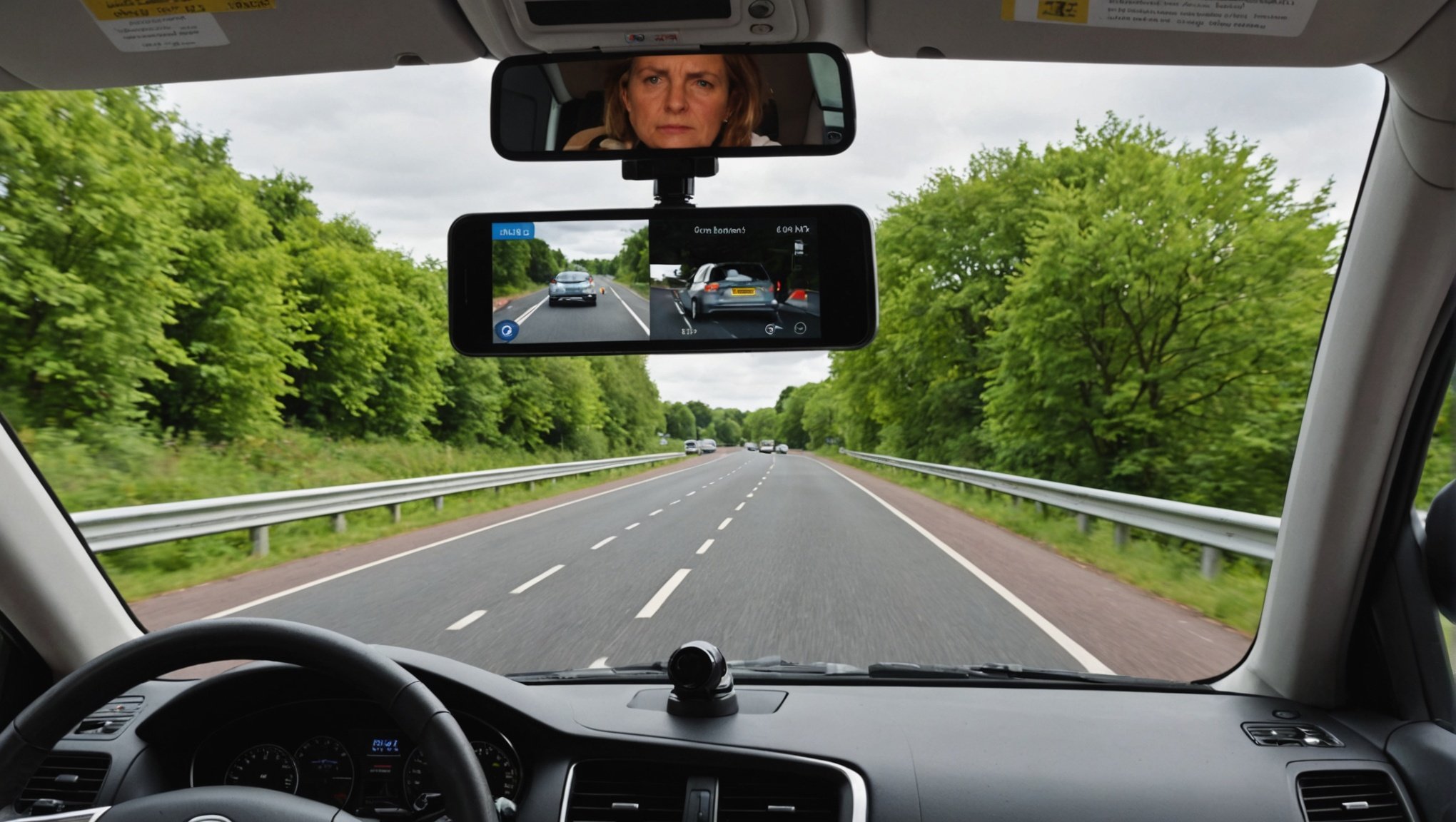Dashboard cameras have transformed the landscape of UK driving laws, offering drivers and authorities new tools for accountability. The rise of these devices provides critical evidence in accidents and disputes, influencing insurance claims and legal proceedings. Understanding these implications is essential for all drivers. This exploration reveals how dashboard cameras shape regulations, enhance safety, and ultimately change the way we perceive responsibility on the road.
Overview of UK Road Regulations
Navigating the roads in the UK requires a comprehensive understanding of UK driving laws and road safety regulations. These laws are designed to ensure safety and order on the roads, protecting both drivers and pedestrians.
Have you seen this : Top Techniques for Efficiently Managing Fleet Vehicles Across the UK: A Comprehensive Guide
Adherence to driving laws is crucial. It not only helps in avoiding fines and penalties but also significantly reduces the risk of accidents. Following these regulations ensures that all road users have a predictable and safe environment.
Enforcement of these regulations is stringent. The UK employs various methods to ensure compliance, including speed cameras, traffic police patrols, and automated number plate recognition systems. These tools help in monitoring and managing road behaviour, ensuring that road safety regulations are upheld. Violations can lead to hefty fines, points on the driving licence, or even disqualification from driving.
Also to discover : Unlocking Savings: Mastering UK Park and Ride Systems for Cost-Effective Urban Commuting
Understanding and respecting UK driving laws is essential for anyone on the road. These regulations are in place to create a harmonious and secure driving experience for everyone. Whether you are a local resident or a visitor, being aware of these laws is a responsibility that cannot be overlooked.
Understanding Dashboard Cameras
Dashboard cameras, commonly known as dash cams, are small devices mounted on the vehicle's dashboard or windshield to record the road while driving. These cameras serve multiple purposes, such as providing evidence in case of accidents, monitoring driving behaviour, and even capturing unexpected events on the road.
Types of Dash Cams
In the UK, there are several types of dash cams available, each catering to different needs and preferences:
- Front-facing dash cams: These are the most common type, capturing the view in front of the vehicle.
- Dual dash cams: These record both the front and rear views, offering comprehensive coverage.
- Interior dash cams: These are ideal for taxis or rideshare drivers, recording the inside of the vehicle.
- 360-degree dash cams: These provide a panoramic view, ensuring no blind spots.
Benefits of Using Dashboard Cameras
Using dashboard cameras offers numerous advantages for drivers. They provide crucial evidence in disputes or insurance claims, thus potentially reducing premiums. Additionally, they enhance security by deterring theft and vandalism. Furthermore, dash cams can improve driving skills by allowing drivers to review their journeys and identify areas for improvement. Overall, dashboard cameras contribute to a safer and more secure driving experience.
Legal Implications of Dashboard Camera Footage
Dashboard cameras are increasingly popular, but understanding their legal implications is crucial. In the UK, dash cam footage can serve as vital evidence in court cases. However, its admissibility of evidence depends on several factors.
The legal standards for admissibility require that the footage is clear, unaltered, and relevant to the case. It must also be obtained lawfully; any breach of privacy or data protection laws could render it inadmissible. For instance, if a dash cam captures footage on private property without consent, it may face legal challenges.
Potential challenges in using dash cam footage include the possibility of it being considered hearsay or lacking context. Courts may scrutinise the footage to ensure it accurately represents the incident without bias. Additionally, technical issues like poor video quality or tampering can affect its credibility.
Despite these challenges, dash cam footage often plays a pivotal role in resolving disputes and clarifying accident circumstances. It provides an objective account that can support or refute claims, making it a valuable tool for both legal proceedings and insurance purposes. Understanding its legal implications ensures its effective use in the UK.
Liability and Fault in Road Accidents
Understanding liability in accidents is crucial for all drivers. Determining who is at fault can be complex, but dashboard cameras play a significant role in this process. These devices provide clear, objective recordings of incidents, which can be pivotal in establishing fault.
Dashboard cameras offer a unique advantage by capturing real-time evidence of road conditions and driver behaviour. This footage can be instrumental in resolving disputes and clarifying accident circumstances. For instance, in cases where both parties claim innocence, a dash cam video can unequivocally show who violated traffic rules, aiding in fault determination.
In the realm of insurance claims, dash cam footage is increasingly being recognised as valuable evidence. Insurers may use this footage to assess claims accurately, potentially leading to quicker resolutions and fair compensation. This can also deter fraudulent claims, as the video evidence provides a factual basis for decisions.
Case studies have shown that dash cam footage can significantly impact liability decisions. In one instance, a driver was exonerated from blame after the footage revealed the other party had run a red light. Such examples underscore the importance of having a dash cam as a reliable witness.
Recent Regulatory Updates Affecting Dashboard Cameras
The UK road regulations have seen notable updates concerning dashboard cameras, reflecting the evolving landscape of road safety and technology. These legal changes aim to enhance driver accountability and ensure the responsible use of dash cams.
Recent amendments focus on the admissibility of dash cam footage in legal proceedings. The clarity and authenticity of recordings have become paramount, requiring drivers to ensure their devices are properly maintained and calibrated. This shift emphasises the importance of using high-quality equipment to avoid disputes over video validity.
Moreover, there is a growing emphasis on data protection laws. Drivers must be cautious about recording in private areas, as unauthorised footage could lead to legal repercussions. This highlights the need for awareness and education on privacy rights among motorists.
Looking ahead, future trends suggest a tightening of regulations around data security and storage. As technology advances, ensuring the integrity and confidentiality of dash cam data will likely become a focal point. These developments underscore the necessity for drivers to stay informed about UK road regulations updates to navigate the legal landscape effectively.
Best Practices for Using Dashboard Cameras
When it comes to dash cam usage tips, selecting the right device and installing it correctly are paramount. Begin by choosing a camera that suits your specific needs, such as a dual dash cam for comprehensive front and rear coverage. Ensure the camera is mounted securely on the windshield, avoiding obstruction of the driver's view, which complies with UK regulations.
Recording and storing footage responsibly is crucial for the effective use of dash cams. Regularly check the camera's settings to ensure optimal video quality and date accuracy. Store footage on reliable memory cards and back up important recordings to avoid data loss. Be mindful of privacy; avoid recording in private areas without consent to adhere to data protection laws.
Compliance with UK laws is essential for responsible dash cam use. Familiarise yourself with regulations regarding dash cam footage admissibility in legal proceedings. Ensure your device is well-maintained and calibrated to avoid disputes over video authenticity. By following these guidelines, drivers can maximise the benefits of their dashboard cameras while respecting legal and ethical standards.
Resources for Drivers on Dashboard Cameras and Regulations
Navigating the intricacies of UK driving laws and dashboard camera regulations can be challenging. Fortunately, several resources are available to assist drivers in understanding these aspects better.
For a comprehensive understanding of UK driving laws, the official UK government website offers a wealth of information. It provides detailed guidelines on road regulations, ensuring drivers are well-informed about their responsibilities. Additionally, the Highway Code is an essential read for all motorists, offering insights into road safety and legal requirements.
When it comes to dashboard camera use, numerous online guides and forums provide practical advice. These resources cover everything from selecting the right dash cam to ensuring footage quality and legality. Websites like Which? and Auto Express offer reviews and comparisons of various models, helping drivers make informed decisions.
For those seeking legal support regarding road regulations, organisations such as the Citizens Advice Bureau provide valuable assistance. They offer guidance on legal rights and can direct drivers to appropriate legal services if needed. Additionally, contacting local solicitors experienced in road traffic law can provide tailored advice for specific situations, ensuring drivers are well-equipped to handle any legal challenges.
















